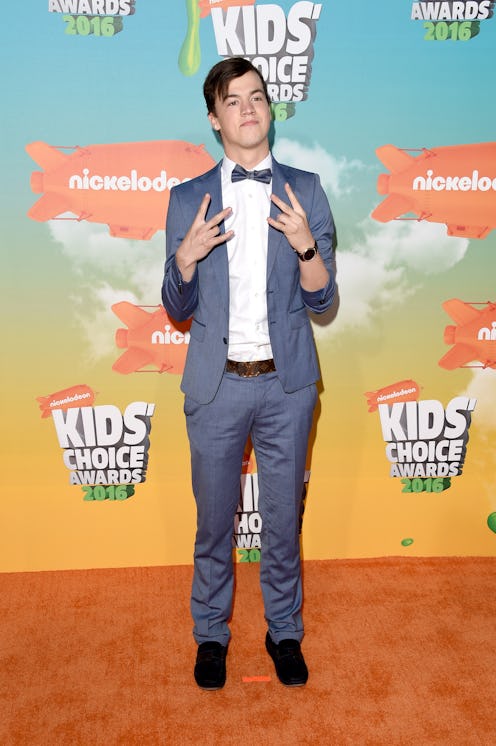Entertainment
Taylor Caniff Has A Controversial History

If you've ever wondered what it would be like to be recognized by millions of online fans, Netflix's Chasing Cameron will explore the life of Cameron Dallas, who turned making six-second online videos into a business and a personal brand. But who is Taylor Caniff from Chasing Cameron? Like Dallas, he is an online celebrity who makes short videos on Vine and YouTube, but if you're not familiar with the world of online vloggers and internet celebrities, it's a little hard to understand just how famous they both are without some explanation. While almost every internet user goes to YouTube at some point, be it for watching movie trailers or finding recipes, there's a group of celebrities who have made whole careers out of the content they put online.
In addition to casual viewers who might check social media every once in a while for laughs, there are also thousands of die-hard fans for personalities like Dallas and Caniff who hang onto their every word, follow them on every platform, and pay to see them at in-person events like MagCon, a collection of online personalities who stage a huge "meet and greet" convention (hence, the abbreviation "m-a-g-con"). Caniff is even part of a clique called the "MagCon Boys," a group of particularly famous online stars that includes Cameron and Aaron Carpenter, and frequently guests Blake Grey, Trey Schafer, Christian Delgrosso, and Willie Jones.
Within this social media ecosystem of creators and fans, some personalities come across as stronger than others, and Caniff can fall on the strong side. After all, he's only 20 years old, and he's been making content for the internet since he was just a teenager. In 2015, he had a conflict with some fellow online personalities. Tyler Oakley, a YouTuber who champions LGBT causes, called out Carniff for making comments that Oakley thought were homophobic — and given the video in question called gay sex "disgusting," it's hard to disagree.
This followed an earlier incident when another YouTuber, LolAnthony, called out some other homophobic comments, and Carniff defended himself in a Tweet, saying that he's not homophobic.
Caniff's response to Oakley and LolAnthony was to make a video saying that he's "not a douchebag," and that they should stop "pick[ing] little things out of our lives that we have messed up and made mistakes."
Since then, Caniff has mentioned that he is going to refocus his channel on helping young girls who are struggling, especially with bullying — seemingly as both response to the bullying claims he levied against Oakley for singling out his comments, and a response to the death of one of his young fans, whom he speaks about at the beginning of the above video. Many of Caniff's fans are young women and girls, which you can tell from his merchandise and many of his videos' comments. Unfortunately, more recently in March 2016, Caniff was involved in even more controversy when actor Acacia Brinley called him out for making sexist comments on Twitter in which he referred to women in music videos as props, as reported by Just Jared Jr. Caniff eventually apologized on Twitter to a fan who was also offended by his comments.
While Carniff might still be navigating growing up in the face of online fame, I hope that both of these experiences have taught him to be more respectful of other people — especially since so many of his fans are young girls.